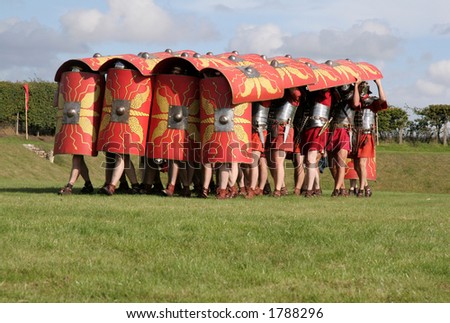The Olympic Games were a series of athletic competition that was held in honor of Zeus. Records indicate that the first Olympic Games were held in Olympia, in Greece in 776 BC. The Games were usually held every four years, called Olympiad because that was the unit of time that was used. During the Games, an Olympic Truce was enacted so that athletes could travel from their countries to the Games without being attacked by other countries. The prizes for the victors were olive wreaths or crowns. To compete in the Games you had to be in one of the many city states of Greece and a free man. Although there are some records that show a woman competing we don’t know if it is true.
The ancient Olympics were as much a religious festival as an athletic event. The Games were held in honor of the Greek god Zeus. On the middle day of the Games 100 oxen would be sacrificed to Zeus. Over time Olympia, the original site of the Games, became a central spot for the worship of head of the Greek pantheon and a temple, built by a Greek architect was erected on the mountaintop. The temple was one of the largest Doric temples in Greece. A sculptor created a statue of the god made of gold and ivory. It stood 42 feet tall.
Only free men who spoke Greek were allowed to participate in the Ancient Games. They could be considered international because they included athletes from the various Greek city-states. Over time participants were allowed to take part in the Games that came from Greek colonies. To be in the Games, the athletes had to qualify and have their names written in a list. It is said that only the young people were allowed to participate. A Greek writer states that one young man was rejected for seeming to mature and only his wife could convince the king of Sparta that he was still young, only after that was he allowed to participate. Before being able to participate in the Games, every participant had to take an oath in front of the statue of Zeus. They had to say that they had been in training for ten months.
At first, the Olympic Games lasted only one day, but over time grew to five days. The Olympic Games originally contained one event called the stadion race. This race was a short sprint that was between 180 and 240 meters or the length of the stadium. The runners had to pass five stakes that divided the lanes, one stake at the start, another at the finish, and three stakes in between. The diaulos was introduced in 724 BC, during the 14th Olympic games. The race was a single lap of the stadium, approximately 400 meters. A third foot race, the dolichos, was introduced in 720 BC. The length of the race was 18-24 laps, or about three miles. The event was similarly to modern marathons. The last running event added to the Olympic program was the hoplitodromos. Introduced in 520 BC and traditionally run as the last race of the Olympic Games. The runners would run either a single or double diaulos, approximately 400 or 800 yards, in full or partial armor. They carried a shield and also had a helmet. The armor weighed between 50 and 60 lb. The hoplitodromos simulated the speed and stamina needed for warfare. Due to the weight of the armor, it was common for runners to drop their shields or trip over fallen competitors. Over the years, more events were added: boxing, wrestling, pankration, (full-contact fighting, like today’s mixed martial arts), chariot racing, and more running events. Also there was a pentathlon, consisting of wrestling, stadion, long jump, javelin throw, and discus throw.





















